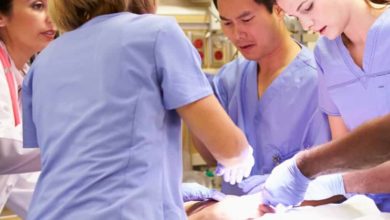By: Visakha Suresh
Although not usually required, participating in a meaningful, productive research during medical school has become increasingly integral to putting together a competitive residency application. For some specialties, such as dermatology, plastic surgery, ophthalmology, and neurosurgery, research in the field is one of the best ways for an applicant to stand apart from his or her peers during the residency application process. Still other medical schools are integrating research blocks into their curriculums, signifying a shift towards developing a future cohort of physicians who have appreciation for the scientific process through direct exposure. However, the process of picking a research project and mentor can seem daunting, especially for students who did not have such experiences as undergrads. Thus, it is very important to consider the following when faced with the decision of whether or not to pursue a research project in medical school.
IRead More: Most Important Factors in Residency Match
What do I want out of a research experience?
Consider your main goal in participating in a research experience. Is it something tangible like a publication? Is it a chance to network with faculty in your specialty of interest? Is it the prospect of acquiring a letter of recommendation? Is it an opportunity to go through the scientific process from start to finish? No matter what the reason, it is important to keep this in mind. For example, certain surgical subspecialties place little to no weight on letters of recommendation from individuals outside their field, so submitting an LOR from a principal investigator from an unrelated department may not be as useful. On the other hand, if you are seeking more autonomy in your research experience, it might not be satisfactory for you to work on a project that is assigned to you. Be honest with yourself about what you want to take away from this experience and seek out mentors and projects that fit these goals.
How much time do I have to dedicate to this experience?
Many traditional US allopathic medical schools have curricula that consist of 2 years of didactics (separated by a summer break) and 2 years of clinical rotations. Others have shifted towards curricula that incorporate a more significant block of time (such as 3 or 6 months) to be dedicated to research alone. Certain types of research may be more or less amenable with your schedule. For example, it may be hard to balance the daily classes and lectures of the didactic years of med school with a time-intensive basic science project. However, clinical research that involves chart review/data-mining may be more easily accommodated. At the end of the day, it is much better to do a few things well than try to overextend yourself and do many things poorly.
IRead More: Navigating the Pre-Clinical Years in Medical School
What kind of mentor do I want to work with?
This is, by far, one of the most important considerations. Developing a strong relationship with your mentor can help you in countless ways, from achieving a short term goal like completing a manuscript to more intangible benefits such as getting plugged into a network that can help you reach your career goals before, during, and after training. It is important to reach out to other individuals who may have worked with a mentor that you are considering to get a sense of their mentorship style. Is this mentor very involved and likes to schedule regular meetings to give you feedback and assess your progress? Or is this mentor more hands-off and expects his/her mentees to troubleshoot on their own before stepping in? It is important to consider what sort of mentorship style would work best for your personality and goals.
These three questions are only some of the considerations that need to be taken into account when pursuing research as a medical student. However, these initial guidelines can help you determine the type of research experience that will be most beneficial for you as a medical student, residency applicant, and eventual attending physician.



